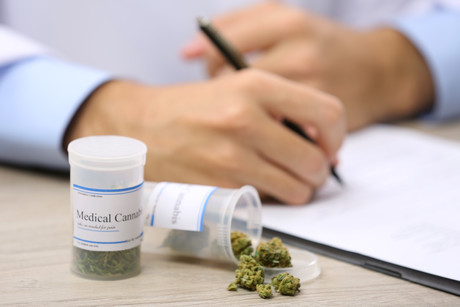Medical cannabis: much work to be done

Over 90% of Australians support the legalisation of medical use cannabis but out of 38,000 GPs in Australia, only a small handful are able to prescribe medicinal cannabis.
In the two years since medicinal cannabis was legalised, only 1059 Australians out of more than 24 million have received approved treatment.
At the recent ‘The Future of Cannabis’ panel at Advertising Week Sydney, Paul Mavor, Health House International pharmacist, stated that he believes only a handful of GPs in Australia are able to prescribe medicinal cannabis.
“All Australian GPs and nurse practitioners can prescribe medical cannabis; however, there is a large amount of paperwork involved so most are reluctant. There is federal and state health department approvals involved in writing a medical cannabis prescription. NSW recently introduced a one-page online smart form which reduced processing times down from two months to within 48 hours — this dramatically improved patient access and has led to a marked increase in prescriber confidence. Victoria and Queensland have just adopted this system and other states are expected to follow suit in the coming months,” he said.
“Cannabis is a new treatment option for many and they are understandably cautious in prescribing something new for their patients. We are starting to see a number of prescribers, particularly pain specialists, switch patients from highly addictive pharmaceutical opioids to cannabis-based medicine.”
Cannabis misinformation
Since the early 1900s, there has existed a culture of misinformation about cannabis. The irony is that in many parts of the world it was actually the preferred medicine of choice by doctors and patients. In fact, when Bayer introduced Aspirin in 1899, cannabis was widely used for pharmaceutical purposes in the USA.
When it comes to patient health, medical professionals should always have a grasp of all the tools available. Studies suggest medical cannabis has the potential to play a therapeutic role in several health issues, including paediatric epilepsy, opioid dependence, chronic pain and certain forms of cancer.
Doctors need to know when cannabis has the potential to help and the protocols for delivering the maximum amount of benefit with the minimum amount of risk. Ironically, many medical professionals also need to be retrained to undo whatever misinformation they were fed in years past that rarely came from sound clinical research.
What Australians want
This summer, BMJ Open published a survey of general practitioners in Australia, and 57% supported availability on prescription, especially for health issues like cancer pain, epilepsy and palliative care. The same study found that most GPs felt their own knowledge was inadequate, and only 29% therefore felt comfortable discussing medicinal cannabis with patients.
Whereas some politicians still resist the inevitable global expansion of medical cannabis, the country’s doctors continue to push for more access and training. Likewise, Australia’s Minister for Health Greg Hunt said he wants Australia to become the world’s leading supplier of medical cannabis, which would necessitate more training across a wide spectrum of professions, including medical.
A majority of doctors are already on board, so what is needed is for them to be more outspoken about medical cannabis as a viable treatment option. Doctors can truly help destigmatise cannabis by using their credibility to explain the potential benefits and dispel the many untruths that originally gave cannabis a bad name. This expansion of knowledge helps remove the stigma that limits how doctors can best treat their patients.
During the recent panel discussions, Sheldon Croome, CEO Atlas Growers, a Canadian medical cannabis and biotechnology company, said, “Practitioners have a unique opportunity to help advance medical science. Not supporting the prescription of medical cannabis means Australian patients are in many cases left with highly addictive pharmaceutical treatments.”
Keeping in mind the strict guidelines in place in Australia (and other countries) when it comes to actively advertising medicines to consumers, doctors and healthcare professionals are the only avenue available to educate consumers on the medical cannabis options.
People need to be helped, but there is much work to be done in educating those who actually do the work.

Breastfeeding challenges healthcare professionals should be prepared to address
A neonatal nurse and lactation consultant sets out what she sees as the most common breastfeeding...
Framework seeks to cut medicine errors at transitions of care
The first coordinated, hospital-based approach to medication management at transitions of care...
Faster acute kidney injury test in development
An Australian university and a diagnostic company have teamed up to develop point-of-care blood...



![[New Zealand] Transform from Security Awareness to a Security Culture: A Vital Shift for SMB Healthcare — Webinar](https://d1v1e13ebw3o15.cloudfront.net/data/89856/wfmedia_thumb/..jpg)
![[Australia] Transform from Security Awareness to a Security Culture: A Vital Shift for SMB Healthcare — Webinar](https://d1v1e13ebw3o15.cloudfront.net/data/89855/wfmedia_thumb/..jpg)




